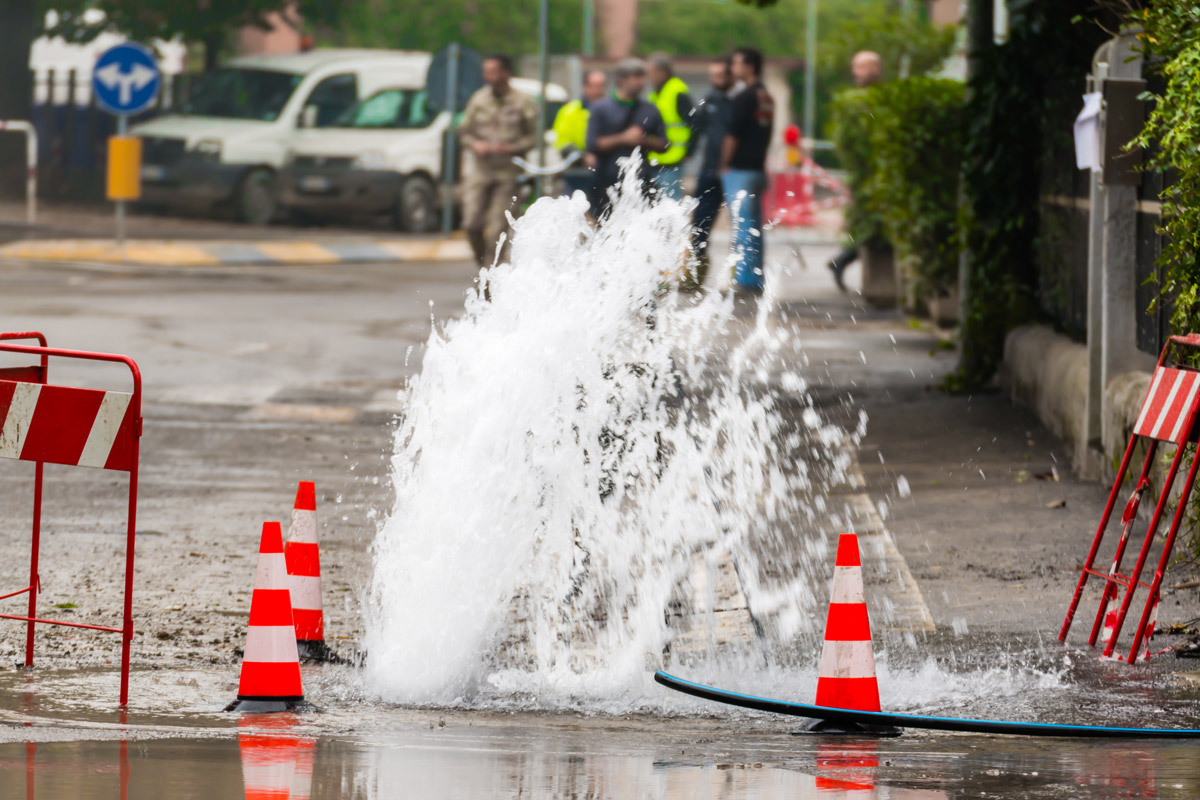
31 Jan. 24
What are the Primary Ways Home Water Mains Fail?
Water mains are critical lifelines to our homes in Vancouver, delivering fresh water for everyday purposes. Yet, they can fail for various reasons, often leading to significant inconvenience and expensive repairs. Understanding the primary causes of these failures can help you avoid disaster and protect your home.
Temperature Changes
Temperature fluctuations are the primary threat to water mains in Vancouver, as subzero temperatures cause the water within pipes to freeze and expand, increasing the internal pressure. Without alleviating this pressure, the pipes can become blocked, cracked, or even rupture.
When temperatures rise after winter, thawing can stress water mains through contraction and expansion, which may lead to weaknesses or breaks. The transition from frozen to flowing conditions requires careful monitoring to prevent damage from occurring.
Vancouver’s climate is wonderful to live in, but the temperature fluctuations significantly impact water mains and will damage any water main over a long period.
Water Pressure Changes
Shifting water pressure is another common culprit of water main failures.
Water pressure changes in water mains can result from various issues. Leaks, whether from small fissures or significant ruptures, drastically decrease pressure as water escapes the system before reaching its intended destination.
On the other hand, clogs or blockages caused by sediment accumulation, mineral build-up, or foreign objects tightly constricting the flow can substantially increase upstream pressure. This heightened pressure strains the pipes, potentially leading to further leaks if the obstruction is not cleared and normal flow restored.
To monitor and protect water mains, homeowners should regularly check water pressure using a gauge, watch for signs of fluctuations like spitting faucets or inconsistent stream strength, and have professionals conduct inspections. Early detection through vigilant monitoring enables prompt repairs, averting potentially severe damage to the water main line.
Internal Corrosion
Corrosion silently attacks pipes from within, gradually degrading the metal until its structural integrity is compromised enough for leaks or bursts to occur.
The main threat is galvanic corrosion, which occurs when two dissimilar metals are connected in the presence of an electrolyte, leading to one metal corroding faster than the other. An example is copper pipes directly connected to steel fixtures.
When copper pipes are directly connected to steel fixtures without proper dielectric (non-conductive) couplings, a galvanic cell is formed. The steel, being less noble than copper, acts as the anode and corrodes at an accelerated rate.
Over time, this galvanic process can significantly weaken the pipe and fixture connections, leading to leaks and reduced structural integrity of the plumbing system.
Another cause of internal corrosion is the mineral composition of the water, as pH imbalances, high mineral content, and aggressive chemicals or disinfectants in the water can degrade the pipe material over time.
Addressing these issues involves replacing affected sections with corrosion-resistant materials or utilizing protective linings and coatings inside existing pipes to extend their lifespan.
Natural Factors
Water mains are also susceptible to external threats, in addition to internal ones. Soil composition plays a crucial role in the corrosion of water mains, with certain elements and minerals being inherently corrosive. For instance, soils with high levels of chlorides, sulfates, or low pH levels (acidity) accelerate the corrosion process.
Oxygen-rich soils can also promote rust formation on metallic pipes, leading to deterioration and the potential for cracks to occur within the piping system.
Once these cracks appear, tree roots can enter the water main. As they grow, the roots exert considerable pressure on pipes, leading to blockages or complete structural failure.
Construction activity near water mains is another factor that can pose a significant threat due to ground vibrations and heavy machinery operations. These factors may cause shifts in the soil that support the pipes, leading to misalignments, cracks, or breaks. Inadvertent strikes from excavation equipment can puncture or sever mains directly, causing immediate flooding and necessitating emergency repair operations to mitigate water loss and property damage.
These factors are much harder to prepare for and detect, often requiring professional inspection.
What To Do If You Suspect Water Main Damage
Recognizing the signs of potential issues with your home’s water main is the first step of the process, but not the entire battle. If you suspect damage, avoid running the water through your taps and turn off your property’s main valve if necessary. Then, immediately contact a professional plumber to conduct an inspection.
As your trusted Hilltop Plumbing professionals serving Vancouver for decades, we specialize in diagnosing and resolving these intricate issues associated with temperature changes, fluctuating pressures, corrosion causes, and disruptions due to natural factors like soil movement or intruding roots.
Hilltop Plumbing & Heating Ltd. is a licensed bonded and insured plumbing and gas fitting company, proudly serving the White Rock and South Surrey area for over 50 years.
Trusted for over four decades, we have been providing plumbing & heating solutions, backed up by our guaranteed workmanship and parts warranty.

